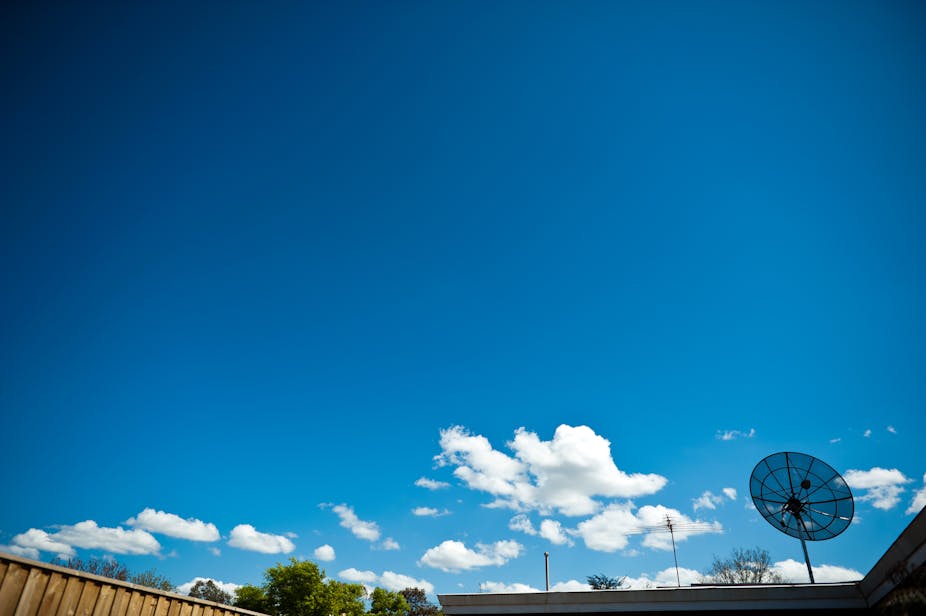Almost every aspect of our lives is in some way touched by space science and technology. As such, the public policy implications are many and varied.
Services provided via space-based technologies are fundamental to our access to information and services – so poor management of, and inequity of access to, those services would have far-reaching ramifications.
When it comes to space-based technologies, consider the following:
-
Health: access to information about services, direct communication with medical practitioners, diagnosis at a distance for remote areas, speed of response and access.
Navigation: the safe and efficient movement of people and goods is facilitated by technologies such as GPS. When working efficiently, these cut travel times and costs.
Entertainment: this is a no-brainer. Satellite TV cannot exist without, well, satellites. And this is only one example.
Security: personal safety (communication and navigation for example), data-gathering and information dissemination about weather emergencies, monitoring of food resources, military and border-protection surveillance.
Economy: large components of our economy rely on data gathering, its efficient transfer and services related to these data.
Climate change: satellite data are critical in both monitoring and managing the effects of climate change.
Education: sound, inclusive policy is needed not only to support education in general, but also to fulfil our need to train technicians and engineers to work directly in space-based industries.

Of particular relevance are the skills shortfalls of 40% or more among organisations responding to surveys such as those reported here. Currently more than 80% of these organisations are filling their shortages with overseas appointments.
But despite these dependencies on space-science and its products, Australia does not yet have an overarching, whole-of-government policy approach to guide our space-related training, research and development. That puts us in a deeply risky position.

The experience from other countries suggests it’s only through sustained, long-term government involvement that space-based industries can achieve critical mass, and from there, stability.
At the very least, Australian Government policies relating to all facets of space science should include explicit support for the strategic and tactical management of existing satellite-based positioning and navigation research and development. Such policies should also provide leadership to strengthen, and broaden, our capacity in this sphere.
This is even more critical as we have seen an active decline in our capabilities in this realm in recent years. That decline not only diminishes our capacity to sustain our domestic needs, but has also made us a less-desirable “other half” for international partnerships.
So where are we at?
There is currently a whole-of-government, national space policy being built within the Department of Innovation, Industry, Science and Research (DIISR) which is due to be put before cabinet in early 2012. (Actually, not quite whole-of-government, as there needs to be a separate defence one for obvious reasons.)
While this effort is unquestionably praiseworthy, it’s perhaps wise to remain “optimistically sceptical” until the final details are revealed. Such scepticism is not aimed at DIISR though, nor the many players who have been involved in this more-than-three-year-long process.
It is more a scepticism at the likelihood of success of any government initiative that requires multiple-department buy-in. This is perhaps even less like in a case such as this; a case where truly whole-of-government cooperation is required.

We also have to be aware that at least two very powerful private players are key stakeholders in the space industry in Australia: the telecommunications industry and – even more significantly – the petroleum industry.
Of course, the participation of big-media and big-oil doesn’t automatically mean that we will have policies foisted on us that aren’t in the interests of the greater good. But it does suggest another reason to be sceptical and vigilant until our new policy approaches to space are disclosed.
Space policy is not something many of us think about at all, better yet pay much attention to. But given the extent to which space science and technology is now embedded in our everyday lives, perhaps we should.
This is the last of three articles in our Australia in Space series. You can read the previous instalments here:

